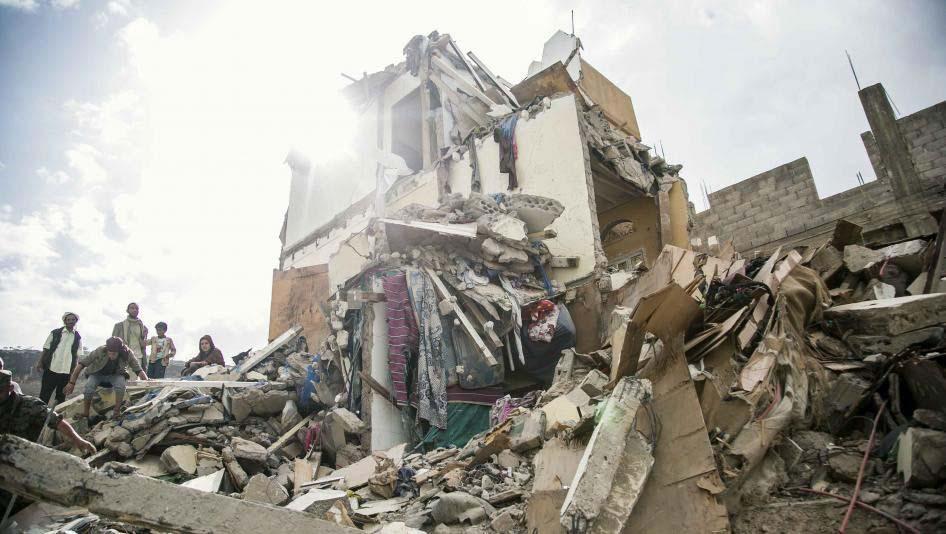The United Nations Human Rights Council cannot afford to falter on Yemen.
This month, as the council debates the fate of a UN investigation into abuses in Yemen’s armed conflict, the warring parties continue to indiscriminately bomb and shell civilians, abduct people from their homes, and interfere with the delivery of food and medicine in a country where millions are hungry and sick.
For too long after the Yemen war began, the Human Rights Council was silent. Last year, the council finally acted, adopting a resolution by consensus – with the support of the Yemeni government and coalition members Saudi Arabia and the United Arab Emirates – to empower a group of experts to investigate abuses since September 2014 and identify those responsible.
In August, the Group of Experts presented their first report, describing horrific war crimes and other abuses that the coalition, the Yemeni government, and the Houthi armed group committed. Given the severity, breadth, and scope of abuses, the experts asked for more time, urging the council to renew their mandate.
The coalition, unhappy with the findings, has sought to quash the inquiry. Human Rights Council member countries should not give in to this pressure.
Last year’s resolution brought an unprecedented level of scrutiny to the warring parties’ horrendous conduct. It was a testament to activists across Yemen and around the world who pushed for the inquiry’s creation, and to the core group of governments – the Netherlands, Canada, Luxembourg, Belgium, and Ireland – who took up the call and made it possible.
The Human Rights Council’s message to the warring parties in Yemen last year was clear: The world – at long last – is watching.
If the council folds to pressure and fails to renew the mandate, the opposite message will be sent this year: the world no longer cares. Yemeni civilians will continue to suffer without the scrutiny that only an independent international monitoring body can provide.
The Group of Experts has much more work to do to ensure investigations into the numerous abuses that have already occurred—and continue to occur—are completed. Members of the Human Rights Council, entrusted with standing up for victims of grave violations, should ensure that work can continue.









